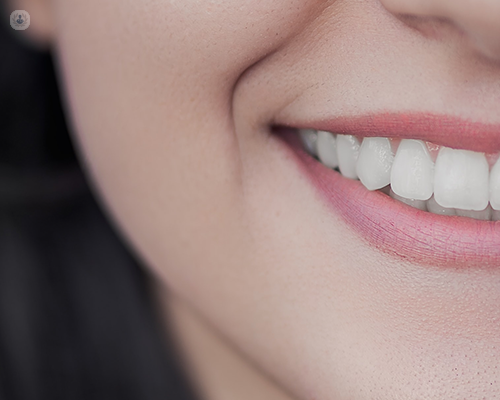Diabetes and oral health: What do I have to consider?
Autore:Diabetes mellitus is a chronic endocrine-related disease that is becoming increasingly common. Between 1980 and 2008, the number of patients rose to 350 million worldwide.
Diabetic patients are more prone to periodontal disease (gum disease) and root caries (decay of exposed tooth root surfaces). To diabetic patients, dental implants are also not always possible. Find out what diabetic patients can do for their oral health.

Diabetes mellitus: a complex clinical picture
It is known that diabetes mellitus is associated with an increased risk of several conditions:
- Cardiovascular diseases
- Eye damage
- Kidney damage
- Nerve damage
- Diabetic foot syndrome
However, it’s a relatively unknown fact that diabetic patients are also at greater risk of developing periodontal disease. Periodontitis, in turn, influences the patient's glycemic setting and consequently, makes it difficult for the doctors to adjust and control the blood sugar level.
Dental implants for diabetics
In some instances, when a patient’s diabetes is not well controlled, they are not eligible to undergo successful dental implant surgery. This is because the disease disrupts the healing of the implant into the jawbone (osseointegration).
The bone needs to have direct contact with the implant surface to heal in a stable and inflammation-free way, which could be challenging for some diabetic patients. For the implants to succeed:
- Your dentist and the GP (or diabetologist) must work closely together.
- Your blood sugar level must be adjusted to optimal before, during and after the implant operation.
- It is also extremely important that you thoroughly use mouthwash before and after the operation as recommended by the dentist.
- Often, your dentist will also use antibiotics to reduce the risk of infection implant failure.
This combination makes dental implants possible for diabetic patients.
Diabetes: how should I look after my teeth?
For diabetic patients, it is particularly important to prevent inflammation of the support structures of the teeth (periodontium). It is recommended that you
- Go for regular dental check-ups
- Go for professional hygiene cleans with your dental hygienists (which should be tailored to meet your individual needs. This also reduces the risk of root caries.
Above all, like any other person, it’s important to maintain a thorough tooth brushing habit with the daily use of dental floss or interdental brushes. Diabetic patients can also supplement their care routine with mouthwash solutions that reduce the risk of inflammation plaque building-up.
Conclusion
Due to the link between diabetes and teeth/gum diseases, proper routine dental care and oral hygiene at home are extremely important for diabetic patients. These habits can prevent tooth decay and periodontitis.
Dr Garcia specialises in all modalities of periodontal treatment – click here to discover what he can do for you.


